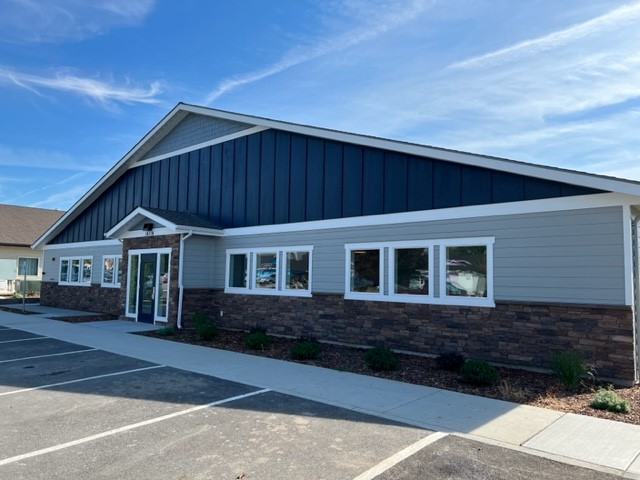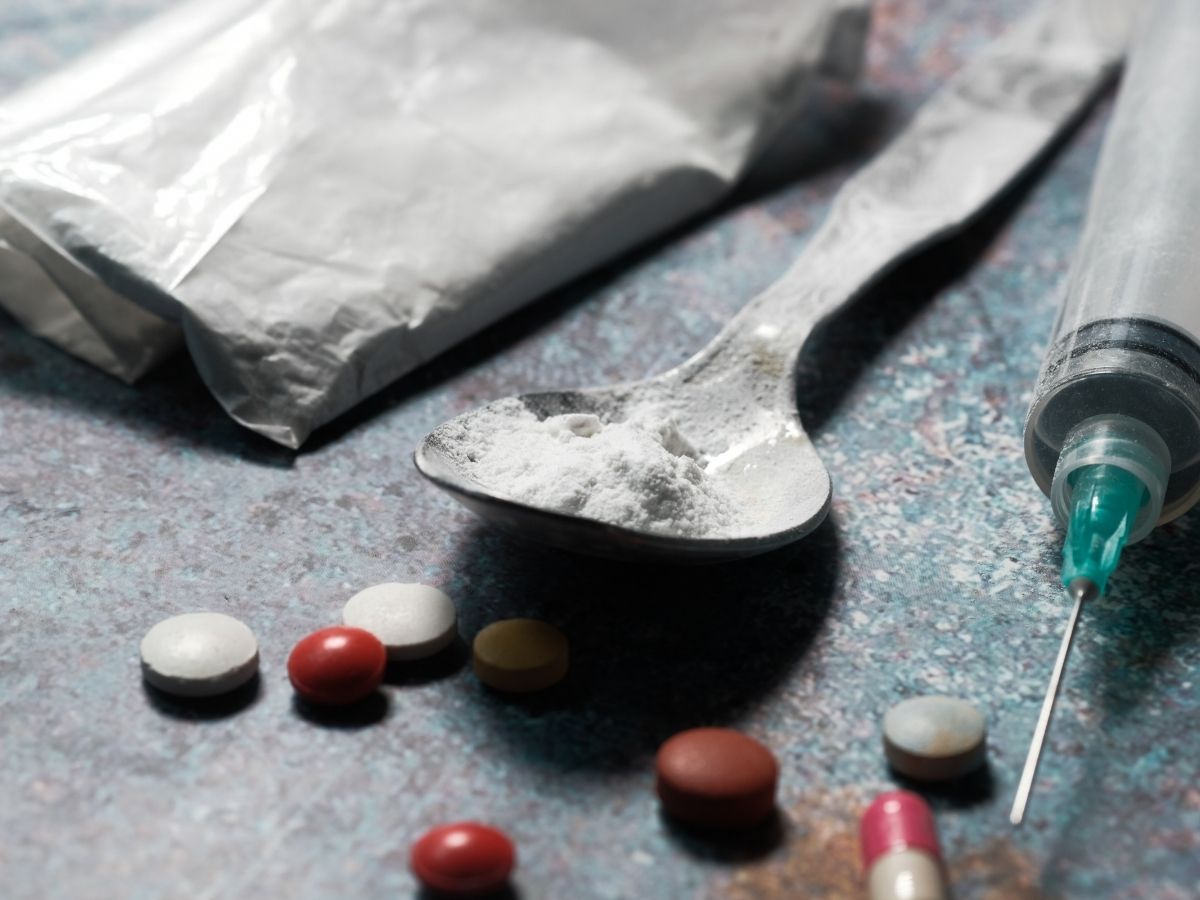
Living with OCD and trauma can feel confusing and overwhelming. You may notice distressing thoughts, a strong urge to repeat certain behaviors, or a sense that your mind never rests. Many people look back at a difficult event and wonder if that experience shaped the way their symptoms developed. These questions are common, and you are not alone. Understanding the OCD, trauma relationship can help you find the right support and move toward healing.
Skip To
Table of Contents
Understanding OCD and Trauma
OCD is a mental health condition marked by intrusive thoughts (obsessions) and repetitive actions (compulsions). These patterns develop as the brain tries to reduce anxiety or regain a sense of control. Trauma involves an event or experience that overwhelms your ability to cope. Examples include abuse, medical emergencies, accidents, or a natural disaster.
When trauma and OCD overlap, the symptoms can blend or intensify. Some people develop obsessive fears related to the traumatic event. Others notice compulsive behaviors that help them avoid distress. This does not mean the person is “choosing” these actions. OCD develops due to changes in the brain and the body’s response to stress.
Causes or Contributing Factors of OCD
Researchers continue to study what causes OCD or if OCD causes trauma. Most findings suggest that multiple factors play a role:
- Trauma exposure
- Genetics
- Brain chemistry
- Learned behavior
- Stressful life events

End the Emotional Pain. Get Your Life Back.
Feeling Depressed, Anxious or Struggling with Mental Health Illness? Get Safe Comfortable Mental Health Dual Diagnosis High-Quality Therapy From Counselors That Care. Begin Your Recovery Now.
Hotline: (509) 348-4077

Can You Develop OCD From Trauma?
Trauma can act as a trigger for OCD symptoms. Studies show that a traumatic event can increase the risk of developing OCD after trauma, especially in people who already have a genetic or biological vulnerability. Trauma and OCD are linked because both can disrupt how the brain processes fear, safety, and uncertainty.
Post-traumatic stress disorder (PTSD) can also influence how obsessive thoughts form. When the brain stays in survival mode, it may create mental rituals or compulsive behaviors to feel safer. This can make the person believe the behaviors prevent harm, even if they interfere with daily life.
Signs and Symptoms of OCD
OCD can look different from person to person. Understanding both OCD and trauma can help you find the right support. Some people check things over and over. Others deal with intrusive thoughts about harm or safety. Each pattern brings its own challenges, but all deserve care and compassion.
The sections below explain the common types in simple, helpful terms so you can feel more confident seeking treatment.
- Intrusive thoughts that feel unwanted or disturbing
- Repetitive actions meant to reduce anxiety
- Fear of harm coming to yourself or others
- Strong urges to check, clean, count, or organize
- Difficulty stopping compulsive behaviors
- A sense of dread if routines are disrupted
You may notice that certain triggers connected to trauma bring up obsessive fears. A person who lived through a frightening event may develop checking behaviors to prevent something similar from happening again. These patterns can become hard to stop without treatment.

Emotional, Behavioral, and Physical Effects
OCD and trauma can affect how you think, act, and feel:
Emotional effects
- Persistent fear
- Shame or embarrassment
- Feeling “on edge” or hyperaware
- Difficulty relaxing or sleeping
Behavioral effects
- Avoiding certain places or activities
- Repeating rituals to reduce anxiety
- Struggling with daily routines
- Pulling away from relationships
Physical effects
- Fatigue
- Headaches
- Stomach discomfort
- Muscle tension
These symptoms may limit your quality of life. You might feel exhausted by constant obsessions and compulsions. You might also feel stuck in old memories or patterns tied to trauma.
Get Help. Get Better. Get Your Life Back.
Searching for Accredited Dual Diagnosis Mental Health Centers Near You?
Even if therapy failed previously, or are in the middle of a difficult crisis, we stand ready to support you. Our trusted behavioral health specialists will not give up on you. When you feel ready or just want someone to speak to about counseling alternatives to change your life call us. Even if we cannot assist you, we will lead you to wherever you can get support. There is no obligation. Call our hotline today.
FREE 24/7 Dual Diagnosis Mental Health Services HotlineRisks and Complications
Without support, OCD and trauma can lead to:
- Worsening anxiety disorders
- Depression
- Social isolation
- Work or school difficulties
- Increased compulsive behaviors
- Higher risk of PTSD symptoms
- Sleep problems
- Strain on family relationships
Some people may use alcohol or substances to reduce anxiety in the moment. This can create more long-term problems. Early treatment can prevent these complications and help you regain a sense of stability.
When to Seek Professional Help
Reach out for help if:
- Symptoms disrupt your daily life
- You spend more than one hour a day on compulsive behaviors
- Your thoughts feel intrusive or distressing
- Trauma memories interfere with sleep, work, or relationships
- You notice your actions are driven by fear, not choice
- You feel you are losing control of your routines
You deserve care that feels safe and supportive. A licensed mental health professional can help you understand what you are experiencing and guide you toward the right treatment plan.
Evidence-based Treatment Options
Treatment for OCD often includes a mix of therapy, medication, and lifestyle changes. When trauma and OCD are present, a dual approach works best.
Cognitive behavioral therapy (CBT)
CBT Therapy teaches you how to change unhelpful thinking patterns. It also helps you understand why obsessions and compulsions develop. Therapists guide you through skills that reduce anxiety and promote healthy coping.
Exposure and response prevention (ERP)
This is a form of CBT that helps you face triggers safely while learning not to use compulsive behaviors. ERP is one of the most effective treatment options for reducing OCD symptoms.
Trauma-focused therapies
Therapies such as EMDR and trauma-informed CBT help you process painful memories without feeling overwhelmed. These approaches can reduce the emotional weight of trauma so that OCD symptoms lessen over time.
Medication
Selective serotonin reuptake inhibitors (SSRIs) can help regulate brain chemistry linked to obsessions and compulsions. Medication works best when combined with therapy.
Lifestyle support
A healthy routine, sleep, nutrition, and grounding skills can support recovery and reduce anxiety.
With consistent care, many people find meaningful relief. Treatment can help you reclaim your daily life and move forward with confidence.
Comfortable Facilities & Amenities
High-Quality Mental Health Services & Behaviroal Health Substance Abuse Treatment
Rehab Centers TourRenowned Mental Health Centers. Serene Private Facilities. Inpatient Rehab Programs Vary.
Mental Health Helpline: (509) 348-4077Proven recovery success experience, backed by a Team w/ History of:
15+
Years of Unified Experience
100s
5-Star Reviews Across Our Centers
10K
Recovery Success Stories Across Our Network
- Low Patient to Therapist Ratio
- Comprehensive Dual-Diagnosis Treatment
- Complimentary Family & Alumni Programs
- Coaching, Recovery & Development Events
- Comfortable Onsite Medical Detox Center
How We Level Up Washington Supports Recovery
We Level Up Washington provides a safe, structured place for adults working through OCD and trauma. Our Spokane Valley facility is peaceful and private, with a maximum of 16 clients at a time. This small size allows you to feel seen and supported throughout treatment.
We offer a dual diagnosis model because OCD and trauma often appear together. You receive care for both conditions in the same program. Our team includes 24/7 nursing staff and telehealth psychiatric providers who monitor your progress and adjust treatment as needed.
Every client leaves with a personalized aftercare plan so support continues at home. Our goal is to help you heal in a safe environment where you do not feel rushed or overlooked.
Access to Care in Spokane Valley
Spokane Valley, WA has growing mental health needs, especially for adults living in surrounding communities such as Spokane, Liberty Lake, Airway Heights, Millwood, Cheney, Otis Orchards, Medical Lake, and Colbert. Many residents face long wait times or limited trauma-specific services.
We Level Up Washington helps fill this gap by offering residential care with immediate support. Our setting allows you to step away from stress and focus on healing. Treatment is available to adults across Eastern Washington who need a calm environment and trauma-informed care.
Frequently Asked Questions (FAQs)
-
Can OCD cause trauma?
Yes, OCD and trauma can be closely connected, because the intense anxiety, intrusive thoughts, and exhausting rituals of severe OCD can create emotionally overwhelming experiences that feel traumatic, sometimes leading to PTSD-like symptoms even without an external traumatic event.
-
Can you develop OCD from trauma later in life?
Yes. Some people notice OCD symptoms after trauma, even if they had no previous signs. Stress, fear, or unresolved memories can activate vulnerable areas of the brain and lead to developing OCD after trauma.
-
How is OCD different from PTSD?
OCD focuses on intrusive thoughts and compulsive behaviors. PTSD centers on trauma memories, avoidance, and hyperarousal. Some people have both OCD and trauma at the same time, which can make symptoms more intense.
-
Where can I get treatment for OCD and trauma in Spokane Valley, WA?
We Level Up Washington offers residential treatment with 24/7 support, trauma-informed care, individual therapy, EMDR, CBT, DBT, and dual diagnosis services.
Practical ways to manage symptoms at home
You can use simple practices to support your recovery:
- Practice grounding skills like deep breathing
- Use a daily routine to reduce stress
- Limit caffeine and alcohol
- Try gentle movement such as stretching or walking
- Connect with supportive friends or family
- Keep a journal to track patterns without judgment
- Remind yourself that OCD symptoms are not your fault
These tips can help reduce anxiety and support professional treatment.
Disclaimer:
These tips are for general education only. They are not a substitute for medical or psychiatric advice. Speak with a licensed professional for personalized guidance.
Get Support For OCD and Trauma Today
If you or someone you love is struggling, reach out today. We Level Up’s Spokane Valley treatment center offers trauma-informed care and 24/7 support. Call (509) 348-2399 or contact us online.




